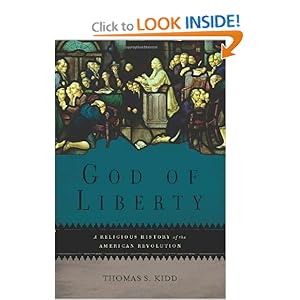The Founding Fathers Would Be Shocked at Our Religious Ignorance

The founding fathers saw the American people's faith and knowledge as integral to the well-being of the republic. Religion, they believed, teaches people about their moral obligations before God and the fundamental equality of all people, while good education trains us in the enlightening wisdom of the ages. If the recently-released Pew Forum Religious Knowledge Survey is any indication, Americans are in trouble in both religion and education. It reveals a lack of religious substance and understanding that the founders would have found deplorable.
George Washington held that religion and schooling—in that order—were necessary components of virtue, the benevolent spirit that preserved civil society and good government. "Of all the dispositions and habits which lead to political prosperity," he said in his Farewell Address of 1796, "religion and morality are indispensable supports. . .Whatever may be conceded to the influence of refined education on minds of peculiar structure, reason and experience both forbid us to expect that national morality can prevail in exclusion of religious principle." But Washington did not disparage learning, either, as he recommended that Americans continually promote "institutions for the general diffusion of knowledge. In proportion as the structure of a government gives force to public opinion, it is essential that public opinion should be enlightened." An ignorant, immoral people, the founders feared, would act and vote on selfish motives alone, steered by the sensational promises of demagogues.
Often the founders joined religion and education, as they did in the Northwest Ordinance of 1787, the last great piece of legislation under the Articles of Confederation. There the Congress mandated that all new states set up systems for public education. Why? Because, the law said, "Religion, morality, and knowledge [are] necessary to good government and the happiness of mankind." Most of the early colonial colleges, including Harvard, Yale, and Princeton, were originally designed to train pastors.
Yet today we see evidence that both deeply reflective faith, and the learning that has traditionally accompanied it, are in decline. To be sure, this trend does not relate to religious knowledge alone: in the same poll, 41% of respondents could not identify Joseph Biden as our current vice president. But the religious findings of the Pew survey are sobering: only half of respondents could identify the Qur'an as the Muslim holy book, while less than half knew that Martin Luther helped to start the Protestant Reformation. Perhaps most depressing for a country that is disproportionately Protestant and evangelical, less than 20 percent recognized salvation by faith alone as a distinctive of Protestant theology. Jonathan Edwards, the leading theologian of the Great Awakening of the eighteenth century, and the author of the haunting sermon "Sinners in the Hands of an Angry God," was identified correctly by only 11 percent of respondents. Many of us don't know the basic features of world religions, but we seem to know even less about our own theological traditions and history.
One theme that seems strangely consistent between the Pew survey and the religion of the founders is that the most skeptical people still know a great deal about religion. Atheists did the best on the Pew survey, and in the founding era, even the most skeptical deists were deeply familiar with Christianity and other world religions. Thomas Jefferson and Benjamin Franklin exemplified the combination of personal skepticism and understanding of—even respect for—religion, at least in an "enlightened" form.
But here is where the similarity between the modern skeptics and those of 1776 probably ends, for today's atheists, at least the most vociferous among them, do not afford faith the kind of respect that Jefferson and Franklin did. Jefferson and Franklin were by no means atheists: they definitely believed that God existed and deserved veneration. In his first inaugural address as president, Jefferson commended Americans' "benign religion, professed, indeed, and practiced in various forms, yet all of them inculcating honesty, truth, temperance, gratitude, and the love of man." Jefferson believed that the First Amendment had created a "wall of separation between church and state," yet he was quite comfortable with public displays of religion, and he regularly attended church services in Congress's chambers as president.
Franklin likewise worked closely with his friend, the great Anglican revivalist George Whitefield, even though Franklin and Whitefield did not see eye-to-eye on theology. Franklin also tried—unsuccessfully—to get the Constitutional Convention of 1787 to open its sessions with prayer, an unusual request from one of the Convention's few open deists.
So whether devout or skeptical, the founding fathers would have agreed that an informed religious faith boosted America's civic health. They would have been alarmed at evidence that suggests that Americans widely profess to be religious, but that their religion is often based on little knowledge of the basic tenets of faith. Not only is this bad for faith communities: religious ignorance is bad for the life of the republic, too.